IOM Yemen: THE SCENT OF HOPE (Nemah’s Journey from Displacement to Entrepreneurship)
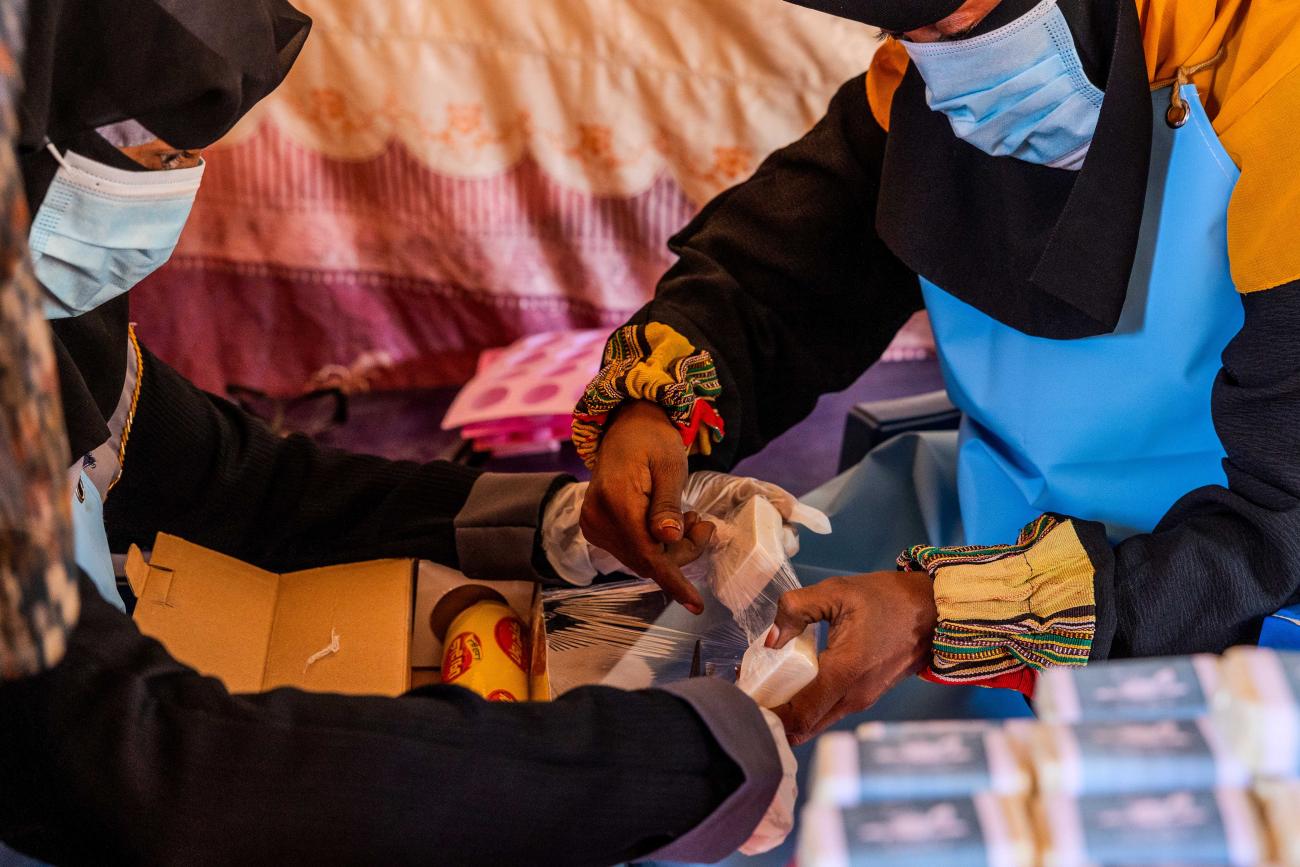
Mokha, Yemen
In the lively streets of Mokha, the sun casts long shadows on the bustling marketplace. Nemah’s vibrant display of soap bars stands out among the vegetables stands overflowing with fresh produce.
With hands weathered from years of labour harvesting crops, she delicately wraps ribbons around her products. Each soap bar holds the promise of a brighter future for her family.
Nemah’s childhood was full of laughter and joy, a stark contrast to her current reality overshadowed by war.
“As a construction worker, my father managed to provide everything for his nine children, from school fees to food and clothing,” she recalls.
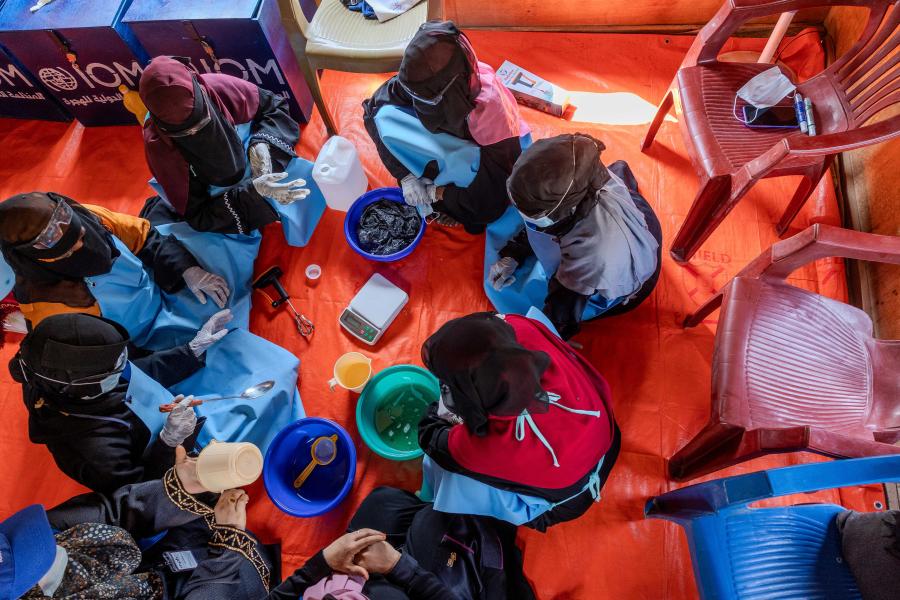
However, tragedy struck Nemah fresh out of high school when she when she was barely 18 years old. Her father’s sudden passing created a void in her life and burdened her with the weight of new responsibilities.
“Life became tough really fast,” she says, recalling the hardship that ensued.
TRIALS OF CONFLICT
As the eldest, Nemah assumed the responsibility for her siblings’ future. During the day, she herded goats and harvested crops for meagre wages. At night, in the dim light of a candle, whispers were exchanged about dwindling food supplies.
Her mother turned to selling handcrafted goods, while Nemah, fueled by both necessity and an entrepreneurial spirit, sold three of their sheep and started her own business, venturing from village to village selling clothes.
In 2015, conflict erupted in Yemen, plunging the country into chaos amidst the ongoing poverty. Nemah soon found herself unable to sustain her business as traveling grew increasingly dangerous due to escalating clashes.
“We had to return to working on farms,” she recounts.
Constant warnings about armed clashes and mines made every trip outside a gamble, which soon led to the family’s displacement and added a new layer of uncertainty.
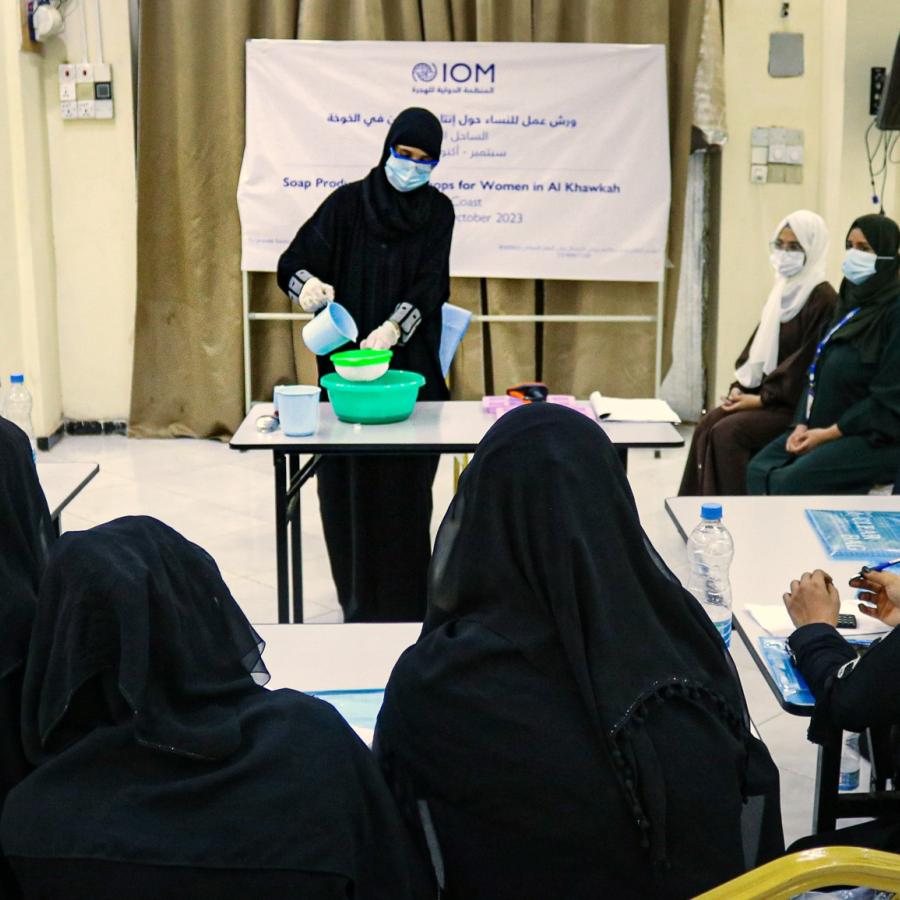
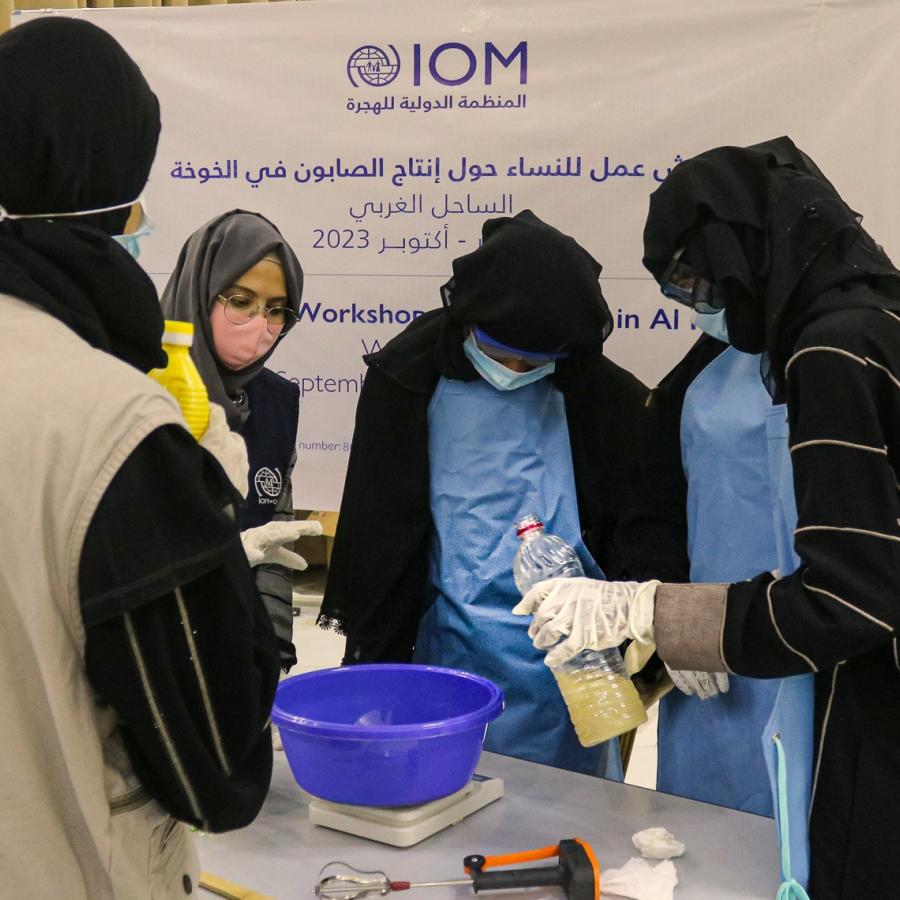
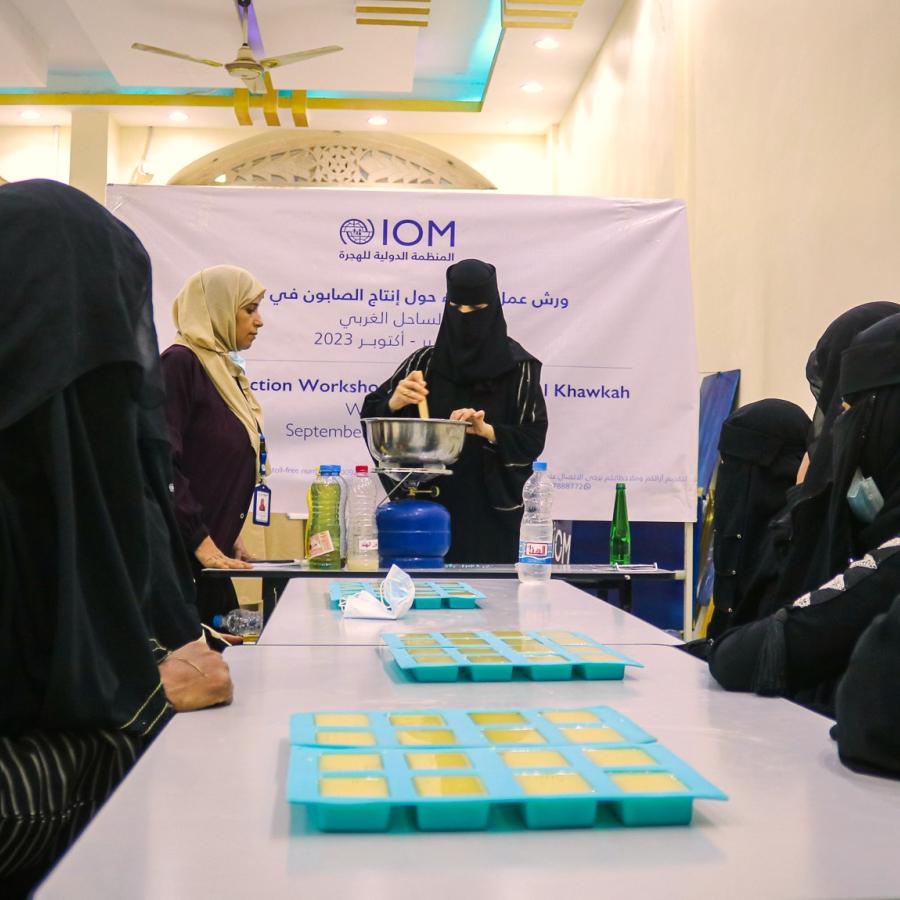
A FRESH START
According to OCHA’s 2024 Humanitarian Response Plan, a staggering 18.2 million people – over half of Yemen’s population – need humanitarian assistance. Soon enough, Nemah and her family found themselves among the 17.6 million facing food insecurity, highlighting the widespread struggle experienced by many households in Yemen.
For eight long years, the family teetered on the brink, surviving on a single meal a day. Education, healthcare, and basic services were out of reach. However, Nemah’s younger sister clung to her dream of attending school. Nemah was determined to find a solution to help her sister fulfill her dream.
A glimmer of hope emerged when the International Organization for Migration (IOM) started conducting vocational workshops for women in Alkhokhah. “We selected 40 vulnerable women, many of them heads of households, and equipped them with income-generating skills,” explains Shomoos Taha, an IOM hygiene promotion staff in Mokha.
Shomoos explains that the soap’s popularity stems from its versatility; it serves as body wash, shampoo, and laundry detergent, hence its name “Alshamel soap” (Arabic for “multi-purpose soap”). A key objective of the hygiene promotion team is now to extend the soap workshop to more women across displacement sites in Mokha, amplifying the impact of their initiative.
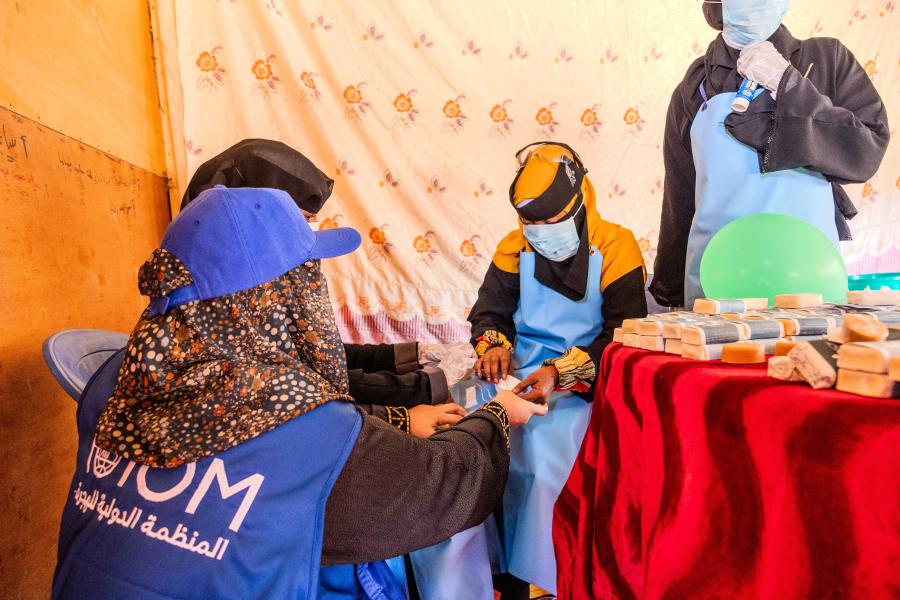
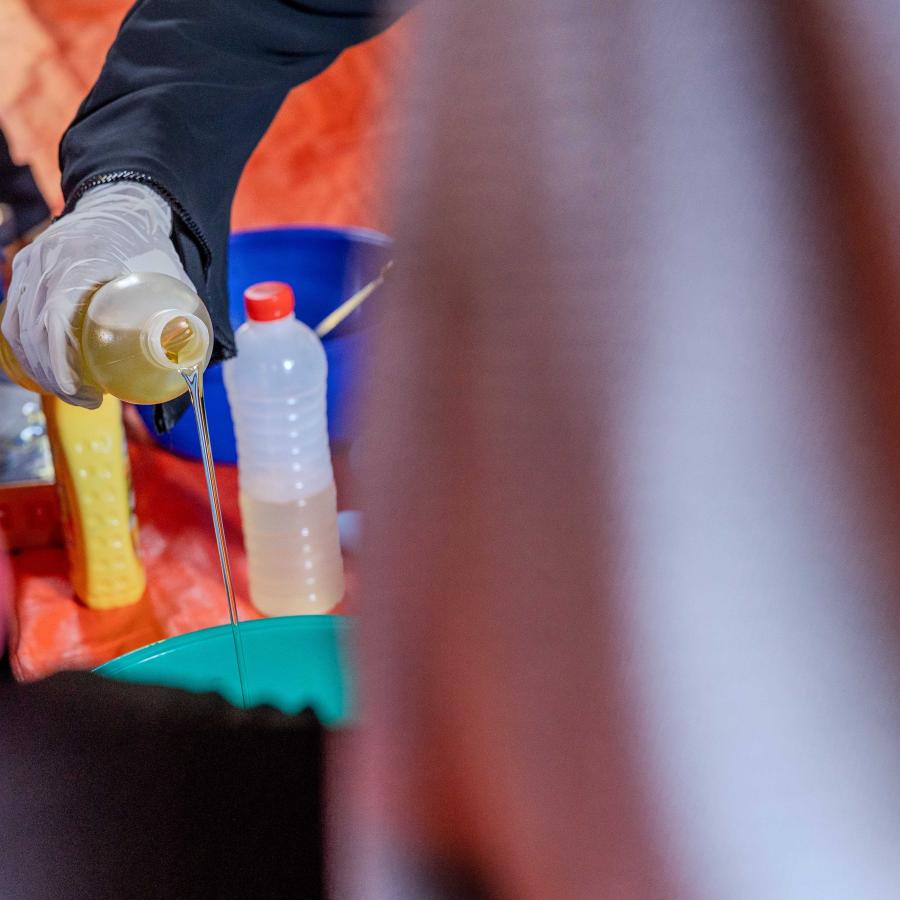
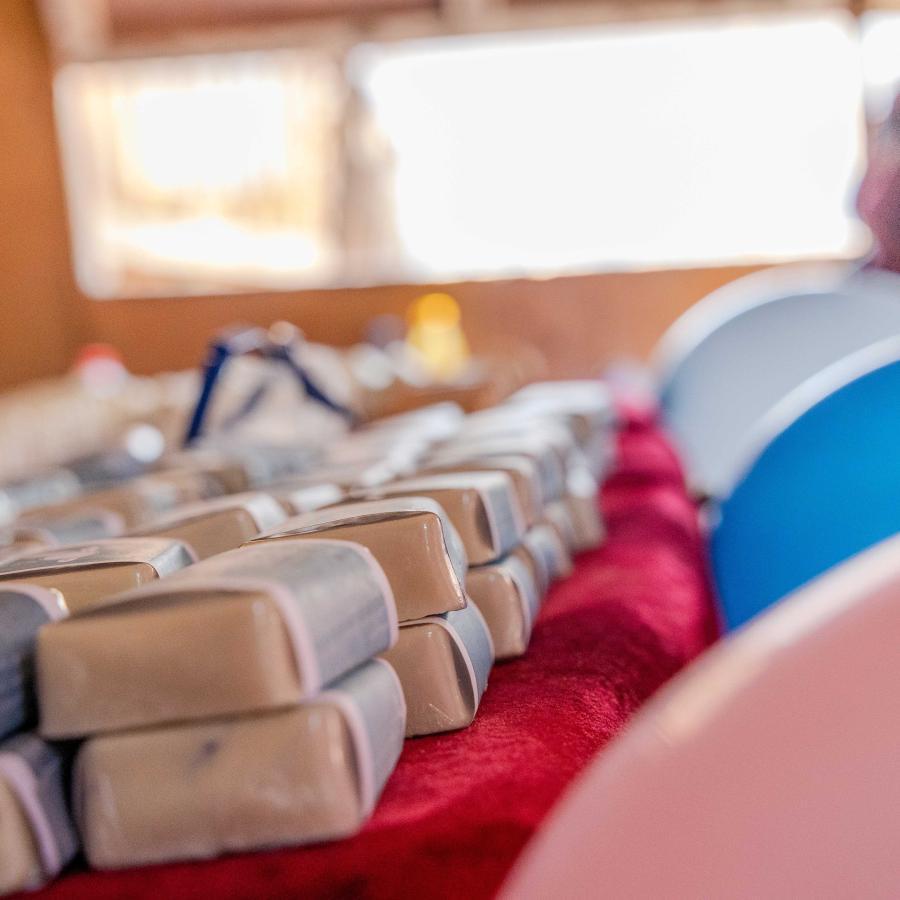
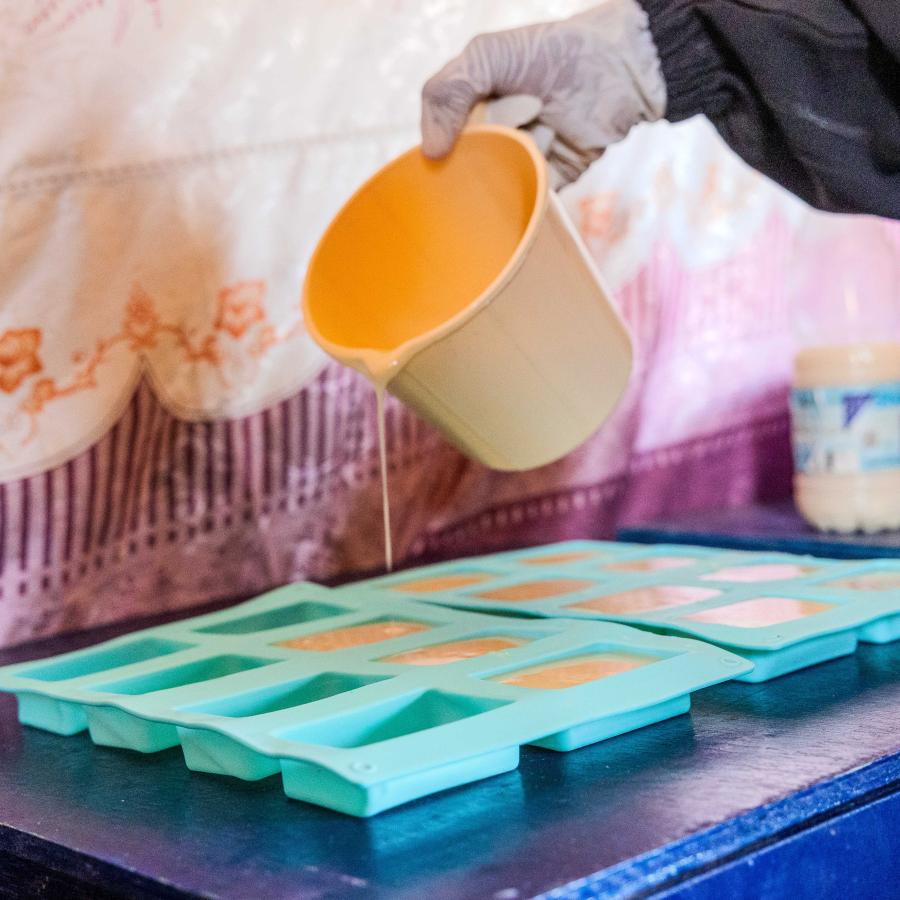
RENEWED COMMUNITY SPIRIT
Through active participation in these workshops and other hygiene promotion initiatives, communities acquire valuable knowledge and skills that contribute to improved hygiene practices and enhanced access to water, sanitation, and hygiene services, thereby fostering healthier living environments.
Nemah’s first sale marked the beginning of her life-changing journey. “I sold 64 bars of soap in one day!” she exclaims, brimming with pride. With the influx of money, she was able to purchase food, clothing, medicine, and other essentials for her family. She also fulfilled her sister’s dream by enrolling her in school.
Taking her success further, Nemah started sharing her knowledge by training other women in soap making, patiently guiding their learning process and inspiring them to believe that they can acquire financial independence.
Beyond earning income, the women who participated in the workshop gained confidence and agency. They could now support their families, send their children to school, access healthcare, and restore some semblance of order amidst chaos.
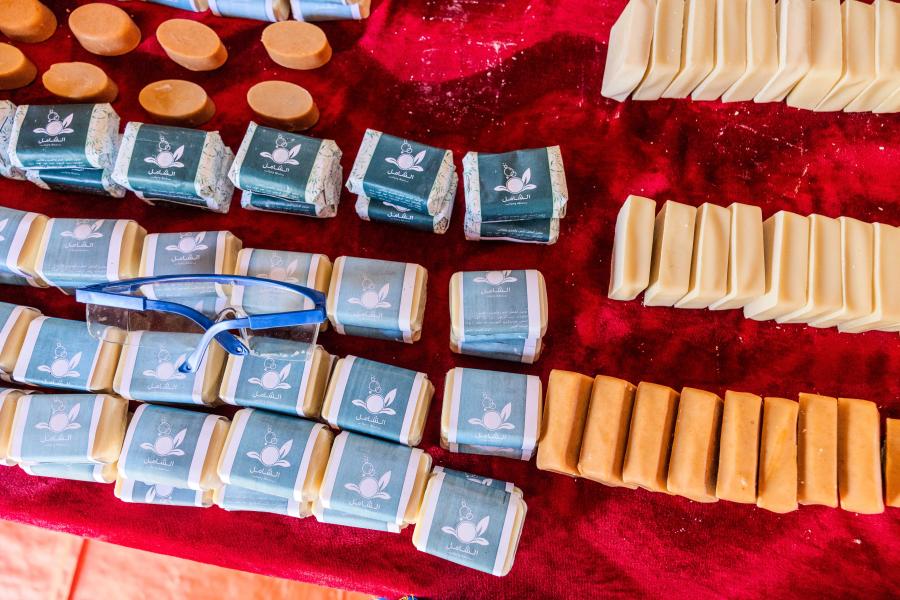
The women are now exploring the possibility of expanding their production to include other hygiene products commonly found in women’s dignity kits distributed to the community. This approach can bolster the programme by making hygiene essentials like soap more accessible to local residents. It also ensures the sustainability of the initiative by tapping into the local market, rather than relying solely on external humanitarian support.
RESILIENCE IN ACTION
The other women who participated in the workshop, much like Nemah, shared similar tales of hardship and resilience. They formed a supportive network, pooling resources to help one another. They started partnering with local businesses, negotiated fair prices for ingredients, and showcased their products at local markets.
Nemah and nine other women recently opened a factory to manufacture organic soap bars near their village, producing over 200 organic soap bars each day. The success of their soap business echoed throughout the neighborhood, drawing other women eager to participate.
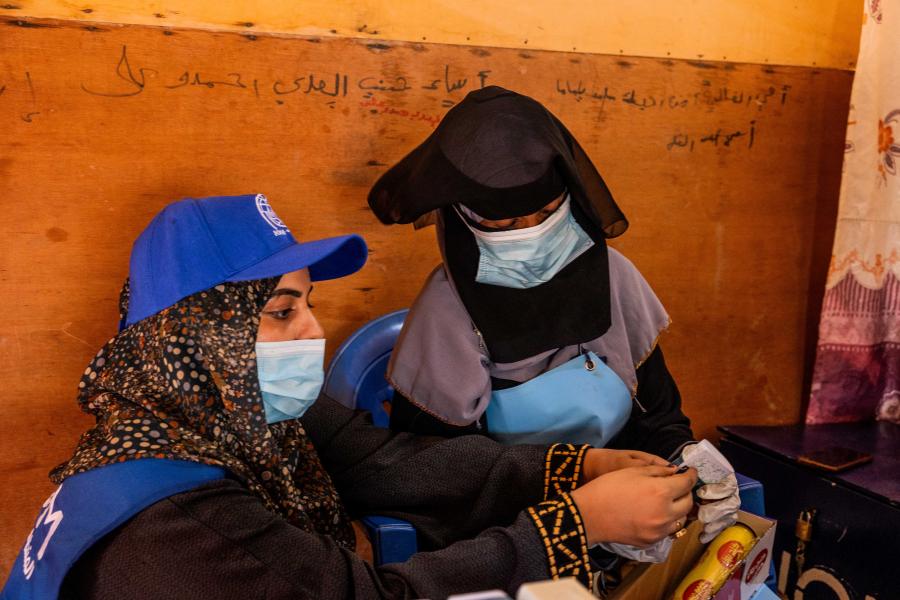
“I never thought I would learn how to make soap,” Nemah explains. And yet, she is now able to proficiently blend coconut oil, olive oil and local herbs to craft bars of organic soap, sustaining her family through her own business.
“Sometimes, you just need to dream big,” she says.

